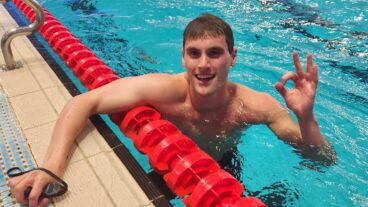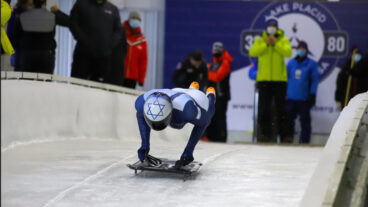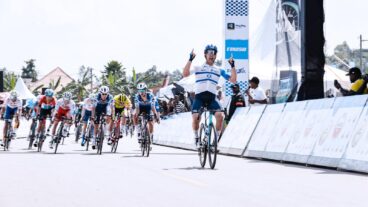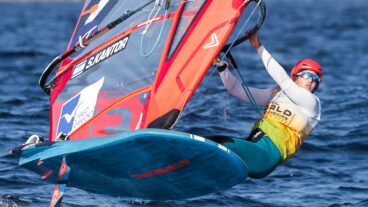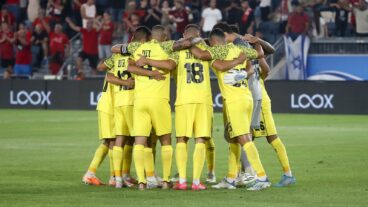When Jared Blank isn’t sitting on the board of directors of ISRAEL21c, he’s running marathons — lots of marathons. In fact, next week he’s planning to run seven marathons, in seven days, over seven continents as part of the World Marathon Challenge.
Blank, who is 35, started training for this extreme annual running event in July last year, when he gave up his job as football operations director at the University of Southern California.
He is taking part in the challenge, which begins next week, to try to raise money and awareness of TeamQuest, the endurance training and fundraising arm of the International Dyslexia Association, a cause close to his heart.
“Making that decision to give up work was something I didn’t take lightly,” admits Blank, talking to ISRAEL21c from his home in Portland, Oregon, the day before flying out for the first leg of the race.
“Director of football development is a big role in college football. But I recognized that there are certain periods when your body can perform the way you ultimately want it to, and with the timing of this challenge and where I was at with my training, it made the most sense to do it now. The challenge had a stronger pull for me.”

To take part in the World Marathon Challenge, participants have to run 295 kilometers over seven days (168 hours), and spend about 48 hours in the air. It’s not for the faint-hearted. Many competitors don’t make it.
Participants begin in the Antarctic, then head to Cape Town in South Africa, Perth in Australia, Dubai in Asia, then Lisbon in Europe, Cartagena in South America, and finish in Miami in North America.
Luckily, competitors fly on chartered flights, and don’t have to navigate regular scheduled flights, with all the difficulties that would entail.
Blank is no stranger to endurance trials. He’s already run eight marathons. In fact, when he looks back on his childhood, he readily admits that the difficult years he suffered then have helped prepare him for physical endurance challenges like this.
At the age of five, he was diagnosed with dyslexia and a few years later told that he was unlikely ever to graduate high school. It took him three times as long as other students to grasp what he was taught.
Did that put him off? Not at all.
He was determined to succeed, and worked harder than ever before.
“When I was young, I was always racing against the clock,” says Blank. “In the classroom, I felt like it was a win if I could understand 25 percent of what was going on. Then, after school, I would go to tutors and that’s where I would make up the knowledge I was missing. It was school upon school, and athletics was always this break for me.
“I would struggle during the day, then do athletics, then struggle again with the tutors. I think that’s why the concept of endurance sports appealed to me, because that’s how I grew up. When you go on a long run, for part of the run you feel good, then you don’t, then it gets good again. That flow challenges your resiliency.”
In the end, Blank not only graduated high school, but went on to take a degree in communications at the University of Southern California, an MA in communications management from the same school, and an MBA from Seattle Pacific University.
Since then he has worked in collegiate football for 14 seasons, for both the University of Southern California and the University of Washington, running football operations and player development.
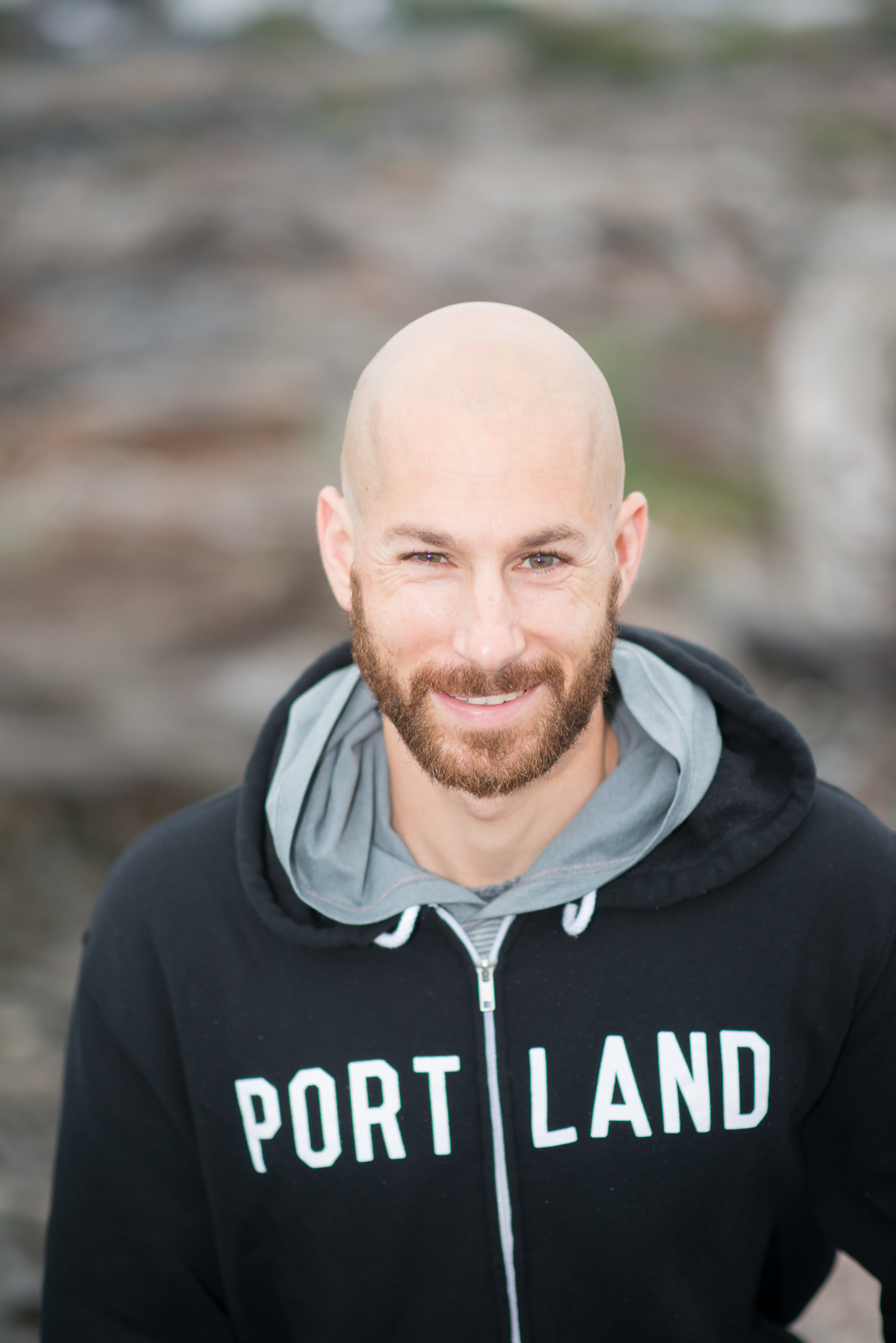
Blank, who is Jewish, has family in Israel and has visited the country twice, joined the board of directors at ISRAEL21c a year ago, after being introduced to the organization by filmmaker and sports personality Yogi Roth, who has worked on several films for ISRAEL21c.
“People often say stereotypical things about Israel, and being part of an organization that understands the landscape of Israel, but tells stories of positivity within the culture, has a lot of meaning for me,” he explains.
“ISRAEL21c brings a different perspective to what’s happening in Israel. We all see problems, but sometimes there’s a beauty hidden behind things that we never see. ISRAEL21c brings that beauty to light. That’s really important to show.”
So is he scared of the challenge ahead?
“I feel grateful for the opportunity to do this, but there are nerves for sure,” he acknowledges. “There are so many uncertainties and variables with a challenge like this. I put a lot of emphasis on finishing. That’s definitely important to me. When something is important to you, that’s where the fear comes in. I want to be as competitive as I can within my own self.
“What I’m looking forward to, though, is running these races. Running races is true enjoyment for me, and I think that meeting people who are trying to do the same challenge and all have unique stories and reasons for doing it, is really exciting. It’s great to be around that kind of energy.”
After the race is over, Blank has a new challenge ahead – to decide what he’s going to do next. He admits he’s not entirely sure whether he will return to college football, look for new endurance races, or do a combination of both.
“I have always been intrigued by the 100-mile race,” he admits. “Potentially I’ll be doing one of those down the road.”
He’s also interested in running an ultra-marathon in Israel. “There’s a huge ultra-community in Israel and I would love to do a race there. To be in that environment and do a race there would be very meaningful. It’s definitely on my list.”







